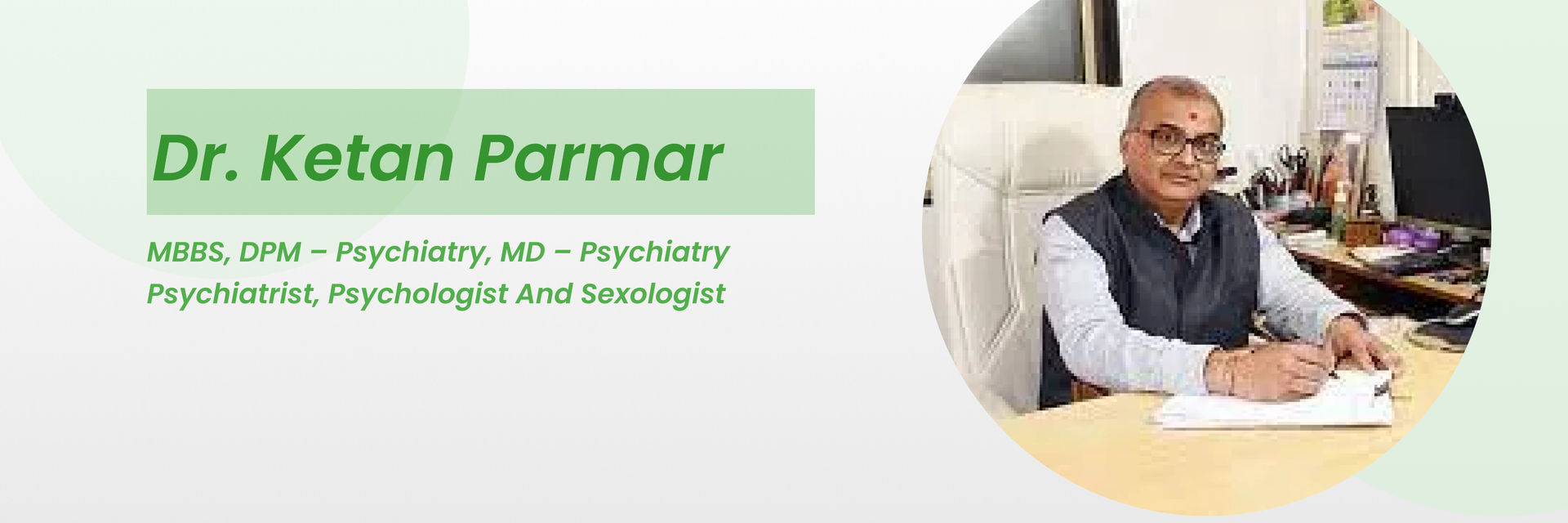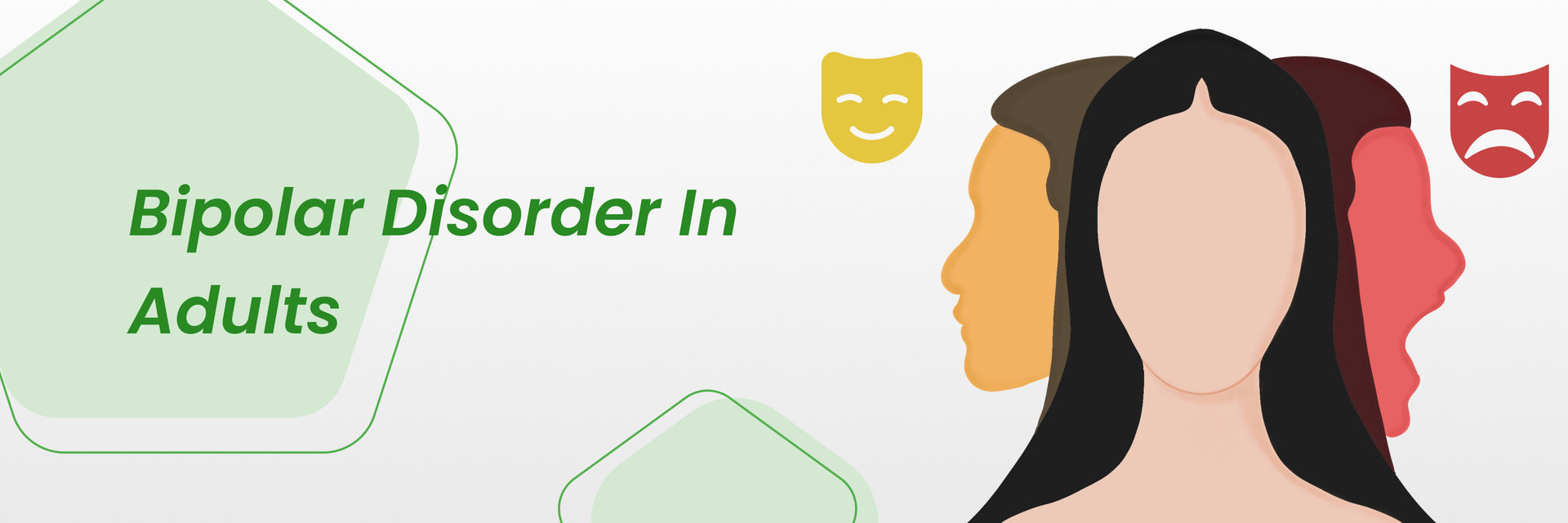Overview
Welcome to our blog post where we'll be discussing post-schizophrenic depression.Do you know?
Post- schizophrenic depression is a mood disorder that affects up to 70% of those diagnosed with schizophrenia worldwide.
This condition is more prevalent in those with a severe form of schizophrenia and can have a significant impact on daily life, including low mood, lack of energy, Anxiety, panic attacks, and poor concentration.
But don't worry, there are ways to make things better!
Treatment options include medication, psychotherapy, lifestyle changes, and social support. With the right help and support, people can feel better and enjoy their lives even with post-schizophrenic depression.
So, if you or someone you know is affected by this condition, don't lose hope!
This blog will explore the available resources, treatments, and coping strategies for post-schizophrenic depression, providing valuable information and support to those who need it.
Living with schizophrenia can be a difficult experience, and post-schizophrenic depression is a common yet under-recognized complication.
Depression is a common symptom of schizophrenia, but what do we know in depth about post-schizophrenic depression?
What is post-schizophrenic depression and how common is it?
Post-schizophrenic depression, also known as post-psychotic depression, is a type of depression that can occur in individuals who have previously experienced a psychotic episode, such as those with schizophrenia.
The exact prevalence of post-schizophrenic depression is difficult to determine because it can be difficult to diagnose and often goes unrecognized.
The exact prevalence of PSD is not well established. But, research suggests that post-schizophrenic depression is common, with some studies suggesting that up to 50% of individuals with schizophrenia may experience a major depressive episode at some point during their lifetime.
Another study reported that PSD affects up to 40% of people with schizophrenia and that it can occur at any time during the course of the disease, including during periods of remission.
The risk of developing post-schizophrenic depression may be higher in individuals with a family history of depression or a personal history of substance abuse.
It is important to note that post-schizophrenic depression can have a significant impact on an individual's quality of life and can increase the risk of suicide.
Having schizophrenia can be a difficult and challenging experience, but for some, it can be even worse.
Post-schizophrenic depression is a consequence of having schizophrenia and can be just as debilitating. Let's explore how post-schizophrenic depression is related to schizophrenia.
How is post-schizophrenic depression related to schizophrenia?
Post-schizophrenic depression (PSD) is a type of depression that can occur after a person has been diagnosed with schizophrenia.
- PSD is believed to be related to changes in the brain that occur during schizophrenia, such as alterations in neurotransmitter levels and brain structure.
- PSD can be triggered by various factors, such as social isolation, negative symptoms of schizophrenia, medication side effects, and stressful life events , panic attacks.
- It can significantly impact on a person's quality of life and recovery from schizophrenia.
- PSD can be challenging to diagnose, as it shares some symptoms with schizophrenia and other mental health conditions.
- It's essential to recognize PSD as a separate condition that requires specialized care to ensure the best possible outcomes for people with schizophrenia.
The symptoms of post-schizophrenic depression are like those of major depressive disorder and may include low mood, feelings of hopelessness, and loss of interest in activities that were previously enjoyed.
Post-schizophrenic depression can be a difficult and complex condition to understand, but being aware of the symptoms can help to identify them early on.
What are the symptoms of post-schizophrenic depression?
Post-schizophrenic depression is a mental health condition that can occur after experiencing schizophrenia.
It is a type of depressive disorder that affects people who have had a past episode of schizophrenia, which is a severe mental health disorder that involves hallucinations, delusions, and disorganized thinking.
Symptoms of post-schizophrenic depression may include
- Persistent low mood
- Feelings of hopelessness
- Loss of interest in before-enjoyed activities
- Changes in appetite
- Changes in sleep patterns
- Fatigue
- Difficulty concentrating
- Feelings of worthlessness
- Suicidal thoughts
Physical symptoms such as :
- Headaches
- digestive problems
According to Dr. Zeeshan Afzal, MD from welzo.com stated that-
Post-schizophrenic depression can significantly impact an individual's ability to manage daily tasks and responsibilities. The symptoms of depression, such as feelings of sadness, hopelessness, and worthlessness, can make it difficult for individuals to engage in activities they once enjoyed and may affect their ability to concentrate and focus.
In addition, individuals with post-schizophrenic depression may experience other symptoms associated with schizophrenia, such as disordered thinking, which can further impair their ability to manage daily tasks and responsibilities. These symptoms may include difficulties with memory, planning, and
Please note: The symptoms of post-schizophrenic depression can vary between individuals, and not everyone with post-schizophrenic depression will experience all these symptoms.
It is important for individuals with schizophrenia to receive ongoing mental health care and for clinicians to watch for the development of depression and other mood disorders.
Mental illness is a complex issue that can have far-reaching effects and post-schizophrenic depression is one of many conditions that can arise as a result.
Depression is a common consequence of schizophrenia, but what are the causes and risk factors that contribute to post-schizophrenic depression?
Causes and Risk Factors for Post-Schizophrenic Depression
The exact causes of post-schizophrenic depression (PSD) are not fully understood, but research suggests that it may be related to several factors, including:
| Causes of post-schizophrenic depression | Explanation |
| Biological changes in the brain | Schizophrenia and post-schizophrenic depression are both thought to involve changes in brain chemistry and activity. |
| Prolonged exposure to stress | Living with schizophrenia can be extremely challenging and stressful, which can contribute to the development of depression. |
| Traumatic life events | Traumatic events such as loss, abuse, or violence can increase the risk of developing depression. |
| Poor social support | Lack of support from family and friends can contribute to feelings of isolation and hopelessness, which can worsen depressive symptoms. |
| Poor physical health | Poor physical health, such as chronic illness or chronic pain, can contribute to the development of depression in individuals with schizophrenia. |
| Genetics | There may be a genetic predisposition to both schizophrenia and depression, and some individuals may be more susceptible to developing PSD due to genetic factors. |
Here are some risk factors that may increase the likelihood of developing post-schizophrenic depression (PSD):
| Risk Factors for post-schizophrenic depression | Explanation |
| Personal or family history of depression | Individuals are at higher risk of developing post-schizophrenic depression. |
| The severity of the psychotic episode | The severity of a person's psychotic episode may increase their risk of developing depression. |
| Duration of untreated psychosis | Delayed treatment of psychotic symptoms can increase the risk of developing depression. |
| Substance abuse | Substance abuse, particularly with drugs like cocaine or amphetamines. |
| Lack of access to mental health care | Lack of access to mental health care or inadequate treatment can increase the risk of developing depression in individuals with schizophrenia. |
These causes and risk factors are not exhaustive and may vary between individuals. However, we need to remember, not everyone with these risk factors will develop post-schizophrenic depression, and some individuals may develop the condition despite it.
Schizophrenia is a mental disorder with profound and lasting impacts, including post-schizophrenic depression. Let's see how is it diagnosed.
How is post-schizophrenic depression diagnosed?
Post-schizophrenic depression (PSD) is a type of depression that can occur in individuals who have had schizophrenia before. The diagnosis of PSD is based on the presence of specific symptoms and a history of schizophrenia.
To diagnose PSD the doctor will perform a thorough evaluation of the individual's symptoms and medication use.
They will look for the presence of symptoms such as:
- Depressed mood
- Fatigue
- Feelings of worthlessness
- Significant weight loss
- Psychomotor agitation
- Insomnia
- Diminished interest
- Diminished ability to think
- Recurrent suicidal ideation
The doctor will also test the individual's medical history to determine if they have a history of schizophrenia or another psychotic disorder.
They will also consider the timing of the onset of depressive symptoms in relation to the individual's history of schizophrenia.
Please Note: If an individual has PSD, treatment may include a combination of medication and psychotherapy. It is important to seek prompt and appropriate treatment for PSD as it can impact an individual's quality of life and functioning.
The impact of schizophrenia on an individual's mental health can be devastating. Having schizophrenia can be a difficult experience, but what happens after the diagnosis?
Did you whisper about treatment?
So let's see what the treatments are!
Can post-schizophrenic depression be treated?
Yes, PSD can be treated. Treatment for PSD involves a combination of therapy, medication, and lifestyle changes, tailored to the individual's needs and symptoms.
Treatment for PSD involves a combination of medication and psychotherapy and may include the following:
- Antidepressant medication: Medication such as tricyclic antidepressants (TCAs) and selective serotonin reuptake inhibitors (SSRIs) are prescribed to help ease the symptoms of depression.
- Psychotherapy: Psychotherapy, such as cognitive-behavioral therapy (CBT) or interpersonal therapy can be helpful in addressing the psychological and social factors that contribute to PSD.
- Support groups: Support groups can provide individuals with PSD with a safe and supportive environment to share their experiences and learn from others who have similar experiences.
- Lifestyle changes: Such as regular exercise, a healthy diet, and stress-reduction techniques, can also help manage symptoms of depression.
- Continuing treatment for schizophrenia: It is important for individuals with a history of schizophrenia to continue treatment for their schizophrenia, as well as receive treatment for PSD.
Prompt and appropriate treatment for PSD can impact an individual's quality of life and functioning. With proper treatment and support, individuals with PSD can achieve remission of their symptoms and improve their mental health.
Living with post-schizophrenic depression can be a difficult and challenging experience, but there are ways to cope and manage the symptoms.
Let's learn below!
Are there any other coping strategies that can help manage post-schizophrenic depression?
Yes, there are several lifestyle changes and coping strategies that can help manage post-schizophrenic depression (PSD) and improve mental health.
These include:
- Regular exercise: Exercise improves mood and reduces symptoms of depression. Aim for at least 20-30 minutes of moderate-intensity exercise.
- Eat a healthy diet: Eating balanced vegetables, a diet rich in fruits, lean protein, and whole grains, can help improve well-being and reduce symptoms of depression.
- Get sleep: Aim for 8 hours of sleep each night. Establish a regular sleep schedule, avoid caffeine and alcohol before bedtime, and create a comfortable sleep environment.
- Practice stress reduction techniques: Stress can exacerbate symptoms of depression. Like deep breathing, meditation, or yoga to help reduce stress and promote relaxation.
- Engage in enjoyable activities: Participating in activities that are enjoyable or fulfilling can help improve mood and reduce symptoms of depression.
- Practice mindfulness: Mindfulness involves being present at the moment and observing thoughts and feelings without judgment.
- Goal setting: Setting achievable goals and tracking progress can help improve self-esteem and motivation.
- Positive affirmations: Repeating positive affirmations or self-talk can help improve mood and reduce negative self-talk.
- Gratitude: Practicing gratitude by focusing on the positive aspects of life can help improve mood and reduce stress.
It is important to incorporate these lifestyle changes and coping strategies into a comprehensive treatment plan for PSD, which may also include medication and psychotherapy.
According to Dr. Zeeshan Afzal, MD from welzo.com stated that-
Social support can play a crucial role in the recovery process for individuals with post-schizophrenic depression. Living with a mental health condition such as schizophrenia can be isolating and challenging, and having a supportive network of family, friends, and healthcare professionals can make a significant difference in an individual's ability to manage their symptoms and improve their quality of life.
Social support can come in many forms, such as emotional support, practical support, and informational support. Emotional support can involve having someone to talk to and lean on during difficult times, while practical support can include help with everyday tasks and responsibilities such as meal preparation or transportation to appointments. Informational support can involve providing resources and information about treatment options and other relevant topics.
When it comes to treating mental illness, the question of whether medications used to treat schizophrenia can also treat post-schizophrenic depression is an important one.
Can medications used to treat schizophrenia also treat post-schizophrenic depression?
Here are some key points about the use of medication to treat post-schizophrenic depression:
- Antipsychotic medications, used to treat schizophrenia, may be helpful in managing symptoms of depression in individuals with post-schizophrenic depression (PSD).
- Antipsychotic medications may be particularly helpful if the depression is accompanied by psychotic symptoms such as hallucinations or delusions.
- But, some antipsychotic medications may cause or worsen depression in some individuals, so careful monitoring is necessary.
- Antidepressant medications, such as selective serotonin reuptake inhibitors (SSRIs) or tricyclic antidepressants (TCAs), treat depression, including PSD.
Individuals with a history of schizophrenia are more sensitive to certain types of medications, so careful monitoring is necessary to ensure that the medication is effective and well-tolerated.
In some cases, a combination of medications may be necessary to manage both schizophrenia and PSD.
It is important to work with a mental health professional to develop an individualized treatment plan that addresses both conditions and any other health concerns or medications the individual may be taking.
As mental health continues to be a topic of growing importance, we need to explore whether it is possible to prevent post-schizophrenic depression.
The long-term effects of schizophrenia can be devastating, leaving many people vulnerable to post-schizophrenic depression - but is it possible to prevent it?
Let us scroll down to see the solution!
Is it possible to prevent post-schizophrenic depression?
While it may not be possible to prevent post-schizophrenic depression (PSD), there are steps that can reduce the risk of developing depression in individuals with a history of schizophrenia.
These include:
- Early treatment: Early treatment of schizophrenia is important to help prevent the development of depression later on. This includes timely diagnosis, appropriate medication, and psychotherapy.
- Continued treatment: Ongoing treatment for schizophrenia, including medication management and psychotherapy, can help reduce the risk of depression by managing symptoms and promoting well-being.
- Healthy lifestyle: Maintaining a healthy lifestyle, including regular exercise, a balanced diet, and enough sleep can help improve mental health and reduce the risk of depression.
- Social support: Having a supportive network of family, friends, or a support group can provide emotional support and help reduce feelings of isolation or loneliness, which can contribute to the development of depression.
- Stress management: Managing stress through relaxation techniques such as deep breathing, meditation, or yoga can help reduce the risk of depression.
It is important to work with a mental health professional/ doctor to develop an individualized treatment plan that addresses both schizophrenia and any potential risk factors for depression. Regular monitoring and follow-up can also help identify and address any emerging symptoms of depression.
We hope this information has been helpful in understanding post-schizophrenic depression (PSD) and the various factors that can contribute to its development and treatment. With proper care and support, individuals with PSD can manage their symptoms and improve their overall quality of life.
Reference:
https://pubmed.ncbi.nlm.nih.gov/8218426/
https://www.karger.com/Article/FullText/520985
https://link.springer.com/article/10.1007/BF02191572
https://www.webmd.com/depression/guide/psychotic-depression
https://www.ncbi.nlm.nih.gov/pmc/articles/PMC5605248/






